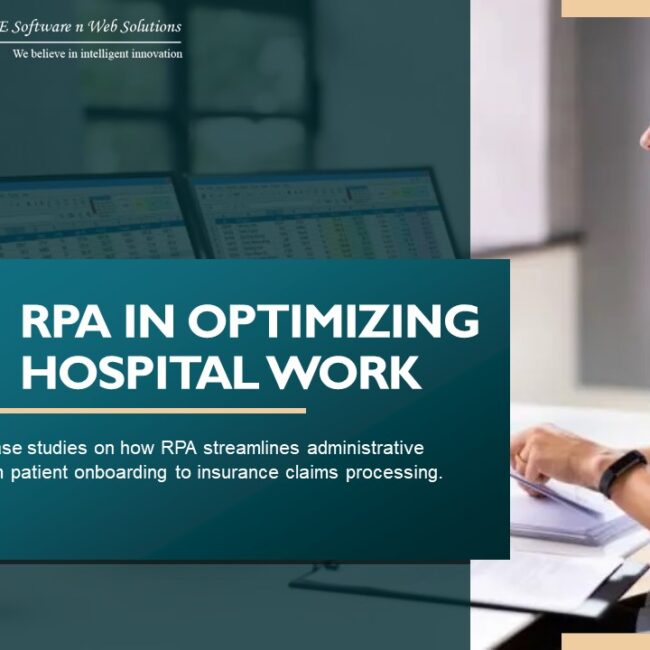
Mobile App Development for Healthcare: Innovations and Challenges
The healthcare industry is experiencing a significant transformation, thanks to the integration of mobile app technology. Mobile apps have become valuable tools for patients, healthcare providers, and researchers, offering innovative solutions that enhance patient care, streamline operations, and improve overall health outcomes. In this blog, we will explore the innovations and challenges in mobile app development for healthcare.
Innovations in Healthcare Mobile App Development
1. Remote Monitoring and Telemedicine
Mobile apps have revolutionized healthcare by enabling remote monitoring and telemedicine. Patients can use apps to monitor vital signs, track chronic conditions, and communicate with healthcare providers in real-time. Telemedicine apps offer virtual consultations, providing access to healthcare professionals even in remote areas.
2. Medication Management
Medication adherence is a critical aspect of healthcare. Mobile apps can help patients manage their medications by sending reminders, providing information about dosages, and facilitating prescription refills. These apps improve patient compliance and reduce the risk of medication-related issues.
3. Health and Fitness Tracking
Mobile apps are widely used to track fitness and health data. They can monitor physical activity, calorie intake, sleep patterns, and heart rate. Fitness apps encourage a healthier lifestyle by setting goals, providing guidance, and analyzing user data.
4. Electronic Health Records (EHR)
Electronic health record apps make patient data easily accessible to healthcare providers. These apps allow for efficient data management, retrieval, and secure sharing among medical professionals. Patients can also access their own health records, increasing transparency and involvement in their care.
5. Medical Imaging and Diagnosis
Mobile apps enable medical imaging and diagnosis through the use of smartphone cameras. Apps for dermatology, ophthalmology, and radiology use image analysis algorithms to detect and diagnose conditions, aiding healthcare professionals in making accurate decisions.
6. Wearable Device Integration
Mobile apps often integrate with wearable devices like fitness trackers, smartwatches, and medical wearables. These devices collect and transmit real-time health data to the associated mobile apps for analysis, offering a comprehensive picture of a patient’s health.
7. Personalized Healthcare and AI
Artificial intelligence (AI) is transforming healthcare apps. Machine learning algorithms can analyze patient data to make personalized treatment recommendations and predictions, enhancing the quality of care.
Challenges in Healthcare Mobile App Development
While mobile app innovations in healthcare are promising, they come with several challenges:
1. Security and Privacy
Security breaches and data privacy issues are significant concerns. Healthcare apps must comply with strict regulations, like the Health Insurance Portability and Accountability Act (HIPAA) in the United States, to protect sensitive patient information.
2. Regulatory Compliance
Healthcare apps need to navigate a complex landscape of regulatory requirements. Developers must ensure that their apps meet legal and ethical standards, adding to the complexity and cost of development.
3. Data Interoperability
The healthcare industry uses various systems and technologies that do not always seamlessly integrate with mobile apps. Ensuring data interoperability is a challenge that requires careful planning.
4. User Adoption
For healthcare apps to be effective, they must be widely adopted by both patients and healthcare providers. Convincing individuals to use these apps and getting providers to embrace new technologies can be difficult.
User Experience and Accessibility
Healthcare apps should be user-friendly, especially for patients with various levels of technical proficiency. Ensuring accessibility for all users, including those with disabilities, is vital.
Data Accuracy and Reliability
The accuracy and reliability of data collected through mobile apps are essential for medical decisions. Ensuring that data is accurate and free from errors is a significant challenge.
Integration with Legacy Systems
Many healthcare organizations still rely on legacy systems. Integrating new mobile apps with these older technologies can be a cumbersome process.
Cost and Resource Constraints
Developing and maintaining healthcare apps can be expensive and resource-intensive. Healthcare organizations may face budget constraints when implementing new technologies.
Conclusion
Mobile app development is reshaping the healthcare industry, offering innovative solutions to improve patient care, streamline operations, and enhance health outcomes. The continued evolution of healthcare apps relies on addressing challenges related to security, regulatory compliance, interoperability, and user adoption. As mobile technology and AI continue to advance, healthcare apps have the potential to make healthcare more accessible, efficient, and personalized for all. The healthcare sector is poised for ongoing transformation through the development and implementation of cutting-edge mobile apps.


